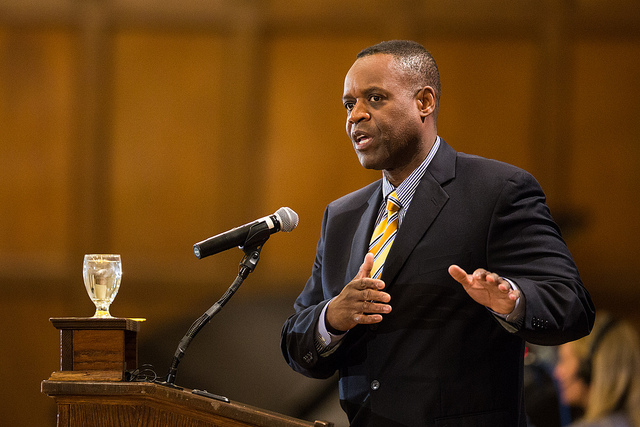AIG revealed in an SEC filing this week that it plans to pay out a massive sum of money to settle an ongoing lawsuit claiming the firm misled investors on the quality of certain investments prior to the 2008 financial crisis.
The total settlement: $970.5 million. And certain pension funds in Michigan will likely see a chunk of that change. That’s because they lost a significant chunk of change when they bought investment vehicles from AIG prior to 2008.
The State of Michigan Retirement Systems says it lost between $110 million and $140 million due to AIG.
Detroit’s General Retirement System as well as the Saginaw Police and Fire Pension Board say they lost millions more, as well.
All told, those funds could receive a combined payout totaling eight figures. From Crain’s:
This week, AIG disclosed to the U.S. Securities and Exchange Commission it would pay $960 million under a mediation proposal to settle the consolidated litigation, on behalf of investors from that period.
[…]
The lawsuit alleges AIG executives gave false and misleading information about its financial performance and exposure to residential mortgage backed securities in the run-up to the financial market collapse.
The $54.8 billion Michigan systems — a group of plans administered by the state Office of Retirement Services for former police officers, judges and other state and public school employees — became lead plaintiff for the class in March 2009, after informing the court of its nine-figure losses.
The federal Private Securities Litigation Reform Act of 1995 says a court should presume a plaintiff is fit to lead class actions like this one if it “has the largest financial interest in the relief sought by the class.” In fact, it had about double the losses of any other plaintiff seeking the same lead role — so its piece of the nearly billion-dollar pie may be larger than most.
The bolded is important, because it means that the State of Michigan Retirement Systems will almost certainly be receiving the highest payout of any of the plaintiffs.
Meanwhile, another Michigan fund—the Police and Fire Retirement System of the City of Detroit—was the beneficiary of another settlement today.
Three private equity firms settled a seven-year-long lawsuit today that alleged the firms colluded and fixed prices in leveraged buyout deals. The firms—Kohlberg Kravis Roberts (KKR), Blackstone, and TPG—settled for $325 million.
Among the suit’s plaintiffs were public pension funds that held shares in the companies that were bought out by the firms at “artificially suppressed prices, depriving shareholders of a true and fair market value.” From DealBook:
The lawsuit, originally filed in late 2007, took aim at some of the biggest leveraged buyouts in history, portraying the private equity firms as unofficial partners in an illegal conspiracy to reduce competition.
As they collaborated on headline-grabbing deals — including the buyouts of the technology giant Freescale Semiconductor, the hospital operator HCA and the Texas utility TXU — the private equity titans developed a cozy relationship with one another, the lawsuit contended. Citing emails, the lawsuit argued that these firms would agree not to bid on certain deals as part of an informal “quid pro quo” understanding.
In September 2006, for example, when Blackstone and other firms agreed to buy Freescale for $17.6 billion, K.K.R. was circling the company as well. But Hamilton E. James, the president of Blackstone, sent a note to his colleagues about Henry R. Kravis, a co-founder of K.K.R., according to the lawsuit. “Henry Kravis just called to say congratulations and that they were standing down because he had told me before they would not jump a signed deal of ours,” Mr. James wrote.
Days later, according to the lawsuit, Mr. James wrote to George R. Roberts, another K.K.R. co-founder, using an acronym for a “public to private” transaction. “We would much rather work with you guys than against you,” Mr. James said. “Together we can be unstoppable but in opposition we can cost each other a lot of money. I hope to be in a position to call you with a large exclusive P.T.P. in the next week or 10 days.” Mr. Roberts responded, “Agreed.”
The settlement now awaits approval from the Federal District Court in Massachusetts.





